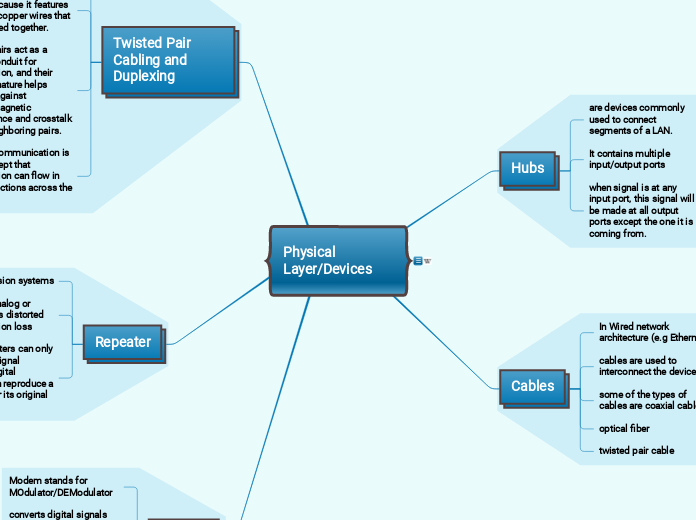Physical Layer/Devices
The physical layer is the lowest layer. This layer provides mechanical, electrical and other functional aids available to enable or disable, they maintain and transmit bits about physical connections.
Modem
cable line and transforms incoming analog signals into digital equivalents
converts digital signals generated by the computer into analog signals
Modem stands for MOdulator/DEModulator
Repeater
Analog repeaters can only amplify the signal whereas a digital repeaters can reproduce a signal to near its original quality.
regenerate analog or digital signals distorted by transmission loss
transmission systems
Twisted Pair Cabling and Duplexing
Duplex communication is the concept that information can flow in both directions across the cable.
These pairs act as a single conduit for information, and their twisted nature helps protect against electromagnetic interference and crosstalk from neighboring pairs.
It's called a twisted pair cable because it features pairs of copper wires that are twisted together.
The most common type of cabling used for connecting computing devices is known as twisted-pair
Cables
twisted pair cable
optical fiber
some of the types of cables are coaxial cable,
cables are used to interconnect the devices.
In Wired network architecture (e.g Ethernet)
Hubs
when signal is at any input port, this signal will be made at all output ports except the one it is coming from.
It contains multiple input/output ports
are devices commonly used to connect segments of a LAN.

